
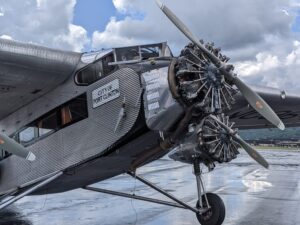
One day last month I heard an airplane flying over my house and from the sound I knew it had to be something unusual. And it was. When I dashed outside and peered up, I saw a Ford Tri-Motor passing overhead. Within minutes I was in my car and driving to the local airport.
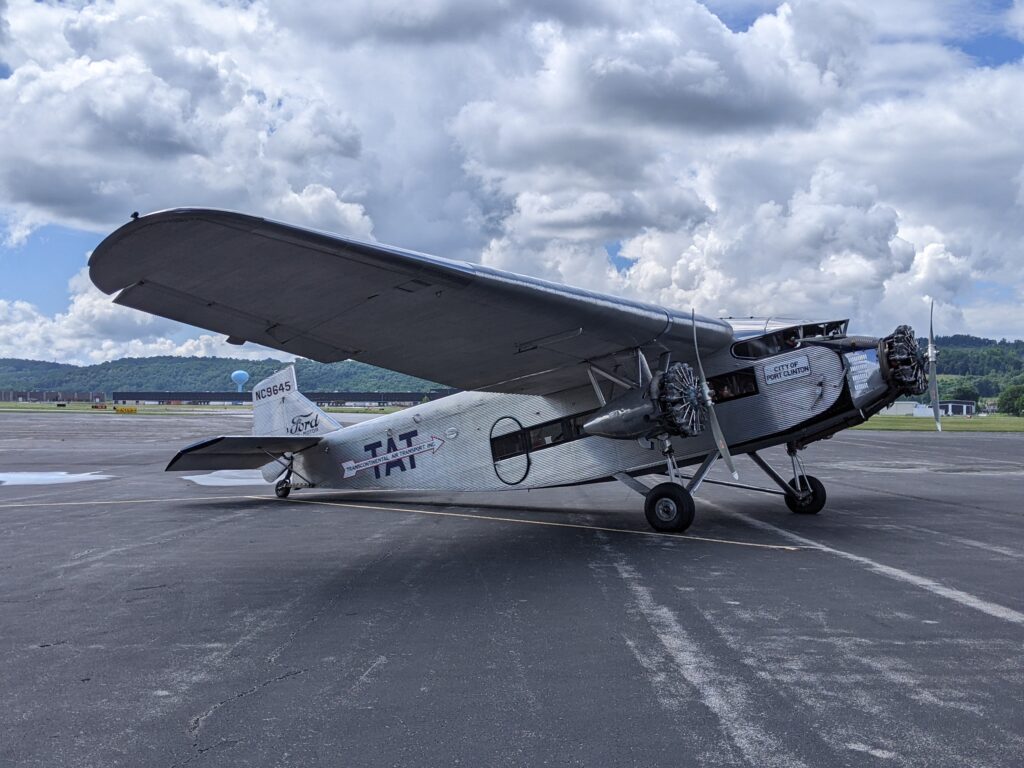
By the time I got there the Tri-Motor had landed. The airplane belonged to the Experimental Aircraft Association and was in town to give paying passengers short rides. I signed up and almost before I knew it, I was sitting in the cramped passenger compartment, just behind the even more cramped cockpit. One of the three Wright engines was just outside my window—and so were the wires that manipulated the control surfaces. This was not a modern airliner. In fact, it had been built in 1929, the 146th of 199 Tri-Motors Ford built. This one had been flown by Pitcairn Aviation through the early 1930s, when Eastern Air Lines purchased the airline. After retiring as an airliner, the Tin Goose was used to fight fires in Idaho. After that, it flew paying passengers (much as it does today) until a violent thunderstorm in Wisconsin left the airplane broken into pieces in 1973. The EAA purchased the wreckage and completed its restoration in 1985. The Tri-Motor today flies in the colors of Transcontinental Air Transport, a precursor to TWA that flew the Fords on combination airplane/train trips across the country.
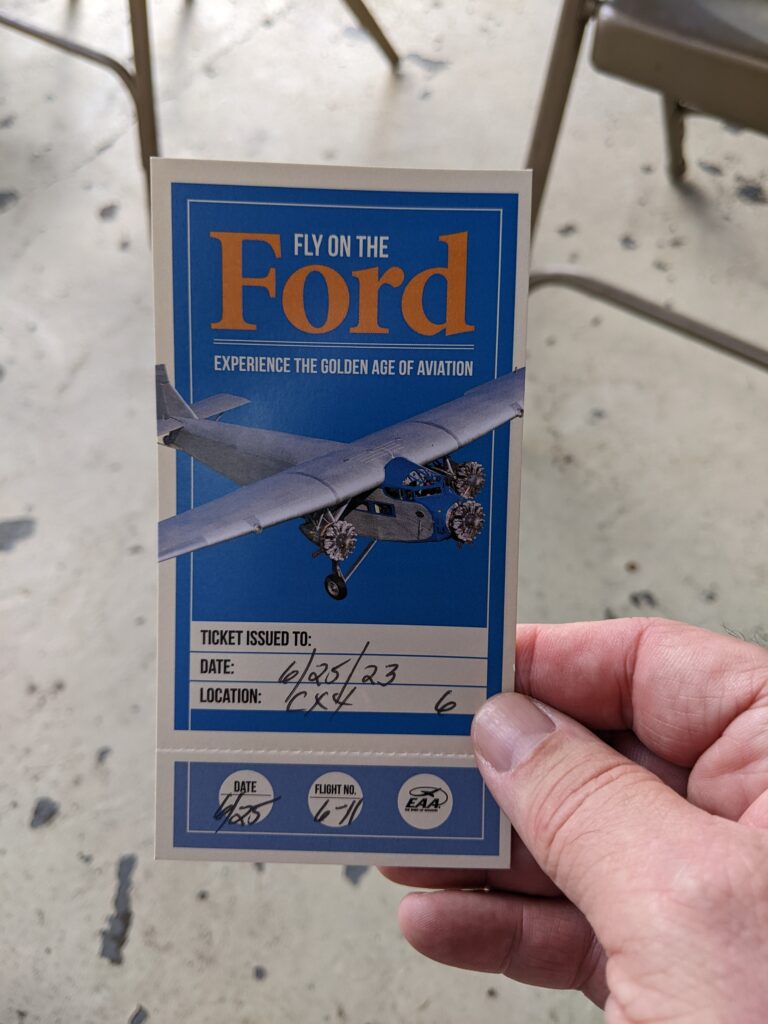
I had never flown in a Tri-Motor before, so I was looking forward to the experience. I was not disappointed. The pilot fired up the engines one by one and within minutes we were taxiing to the runway. At the end the pilot pushed the throttles forward, the engines roared, and we were moving down the runway and into the air. What a thrill! And what a strange feeling to fly over my house where, less than an hour before, I had been gazing up at this airplane as it flew by, completely unaware that I would soon be aboard this piece of aviation history. You can read more about the Ford Tri-motor here.
Here’s a video of my Tri-Motor experience. Scroll down to see more more photos.
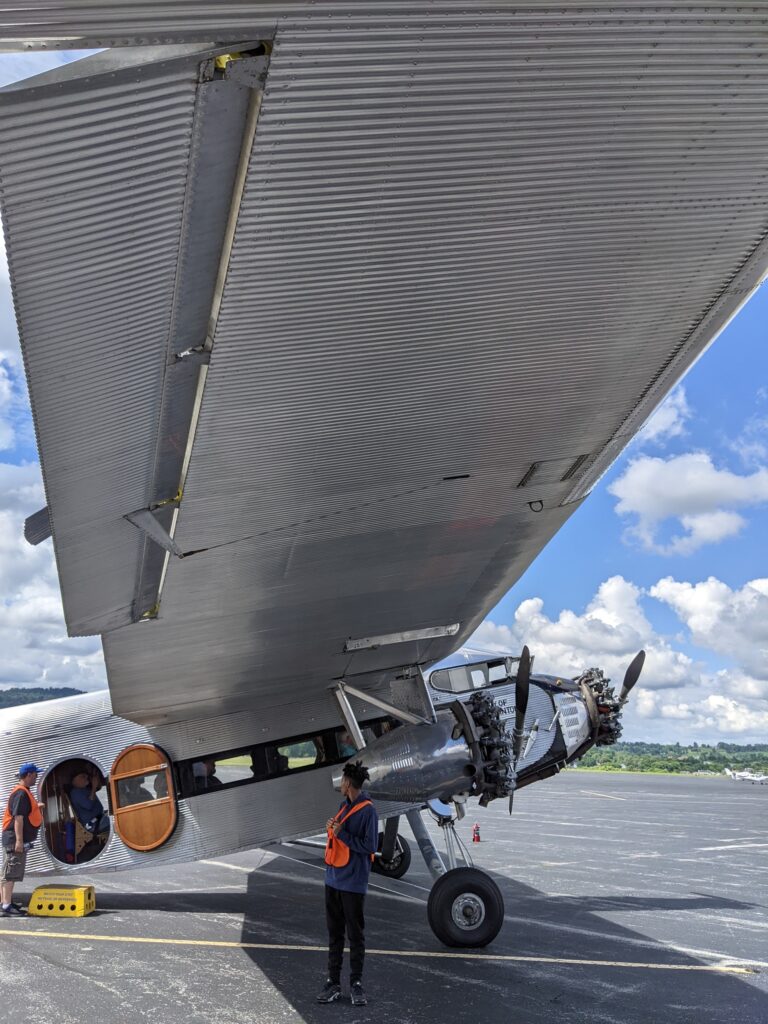
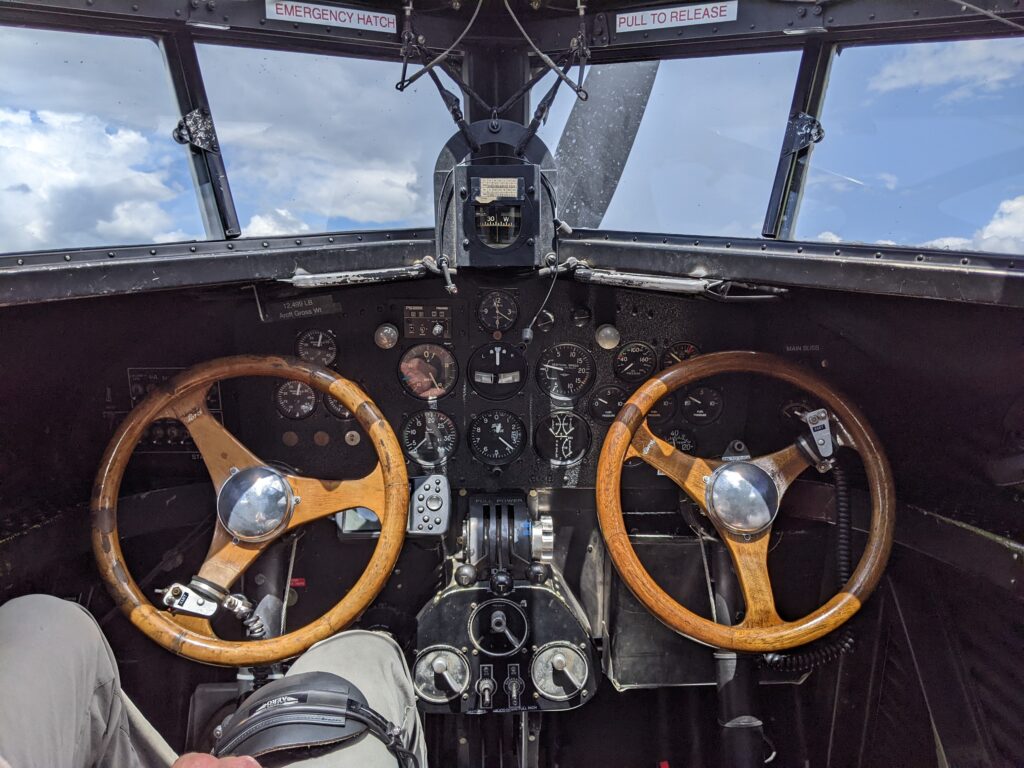
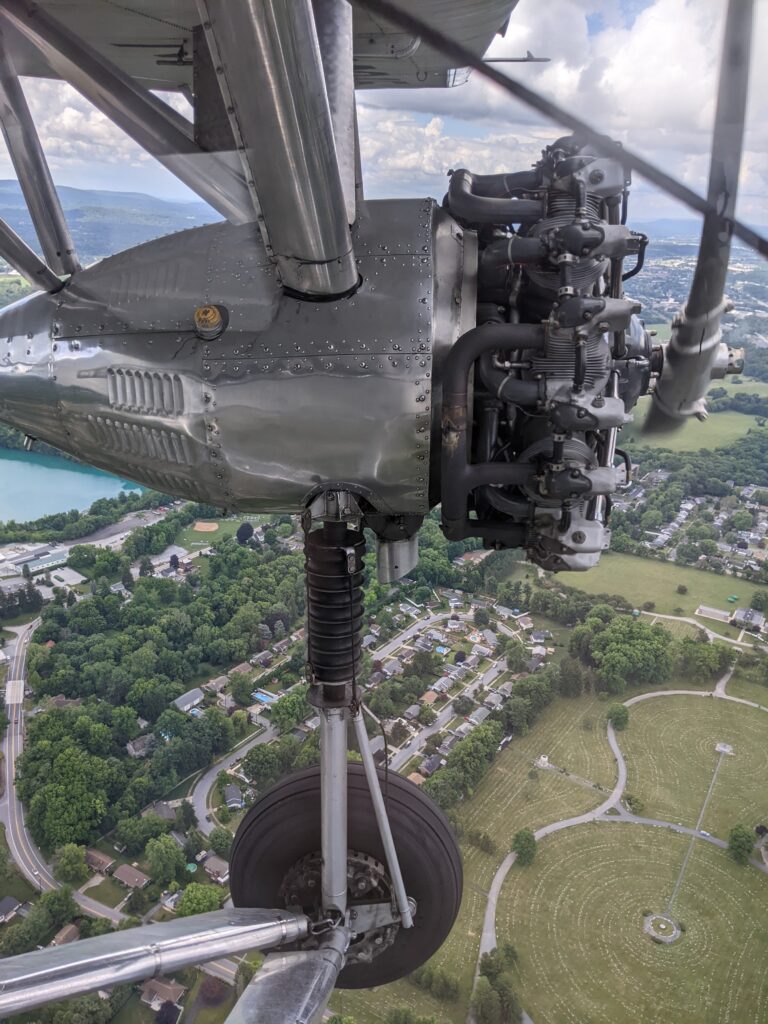
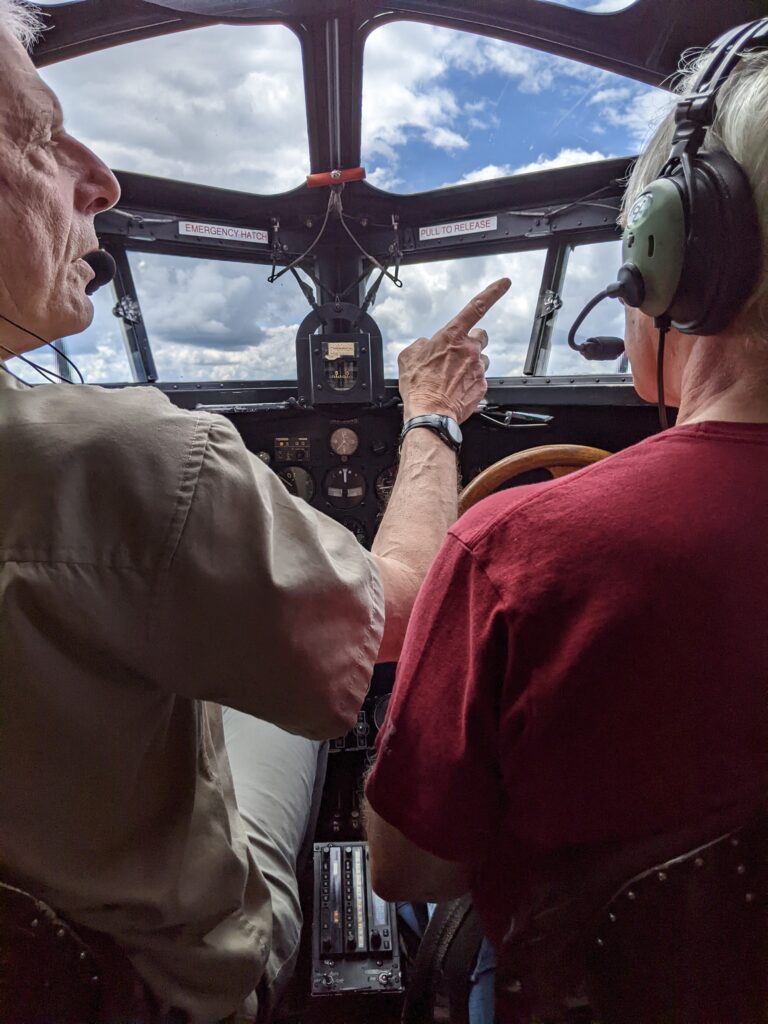
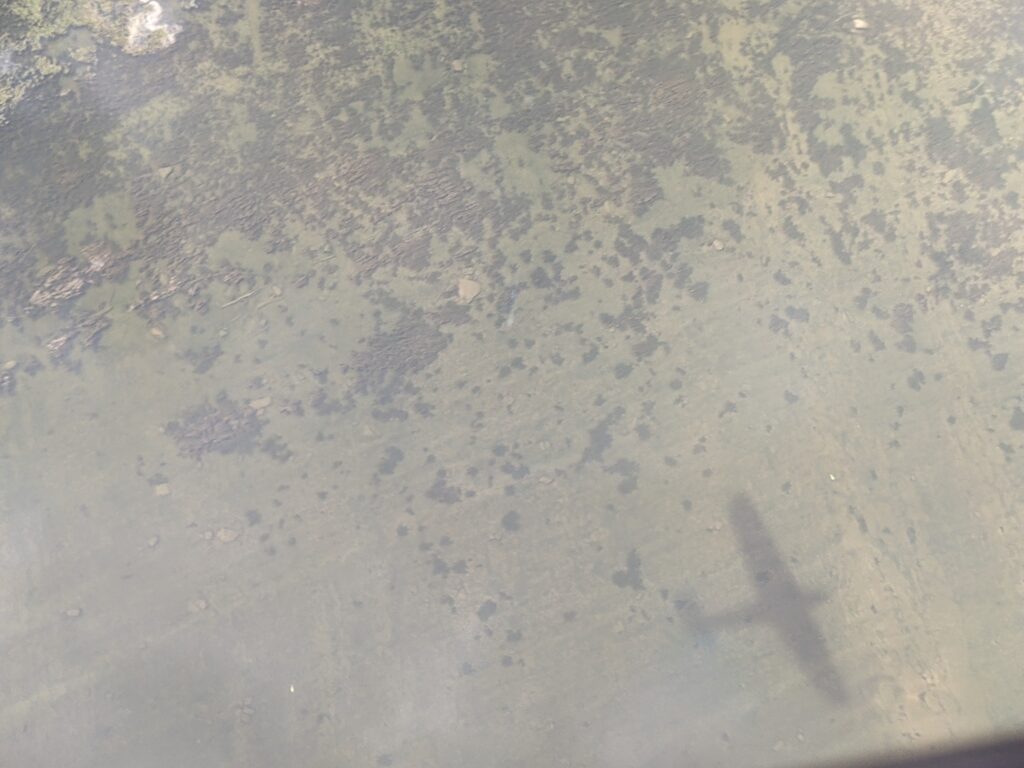
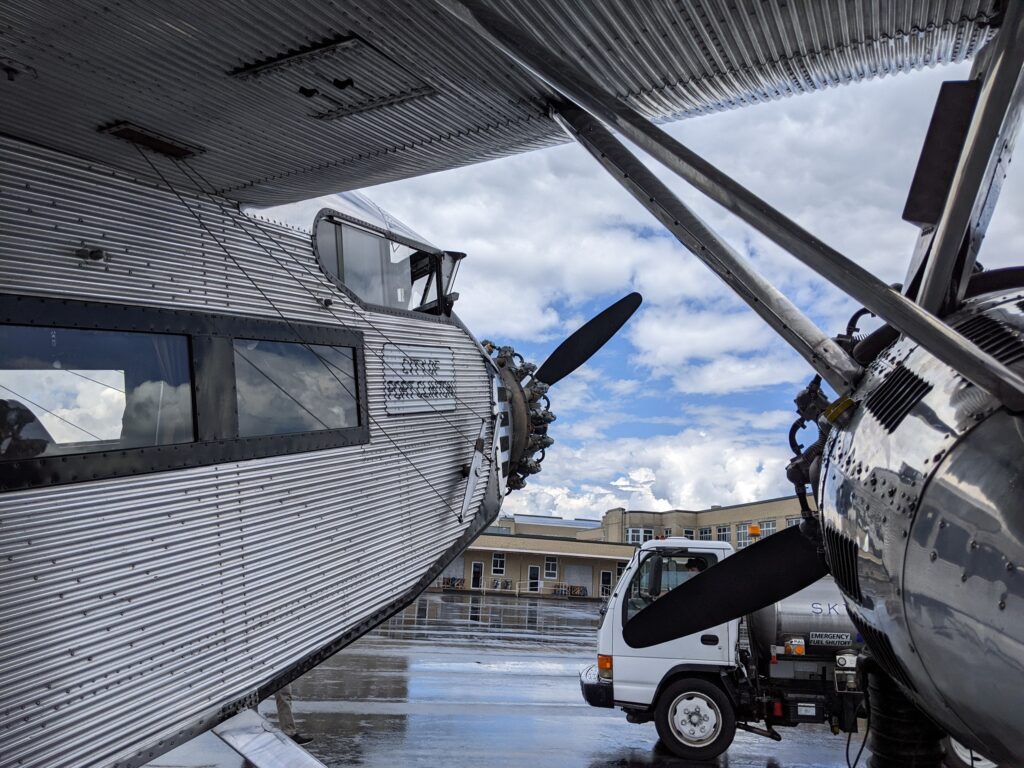
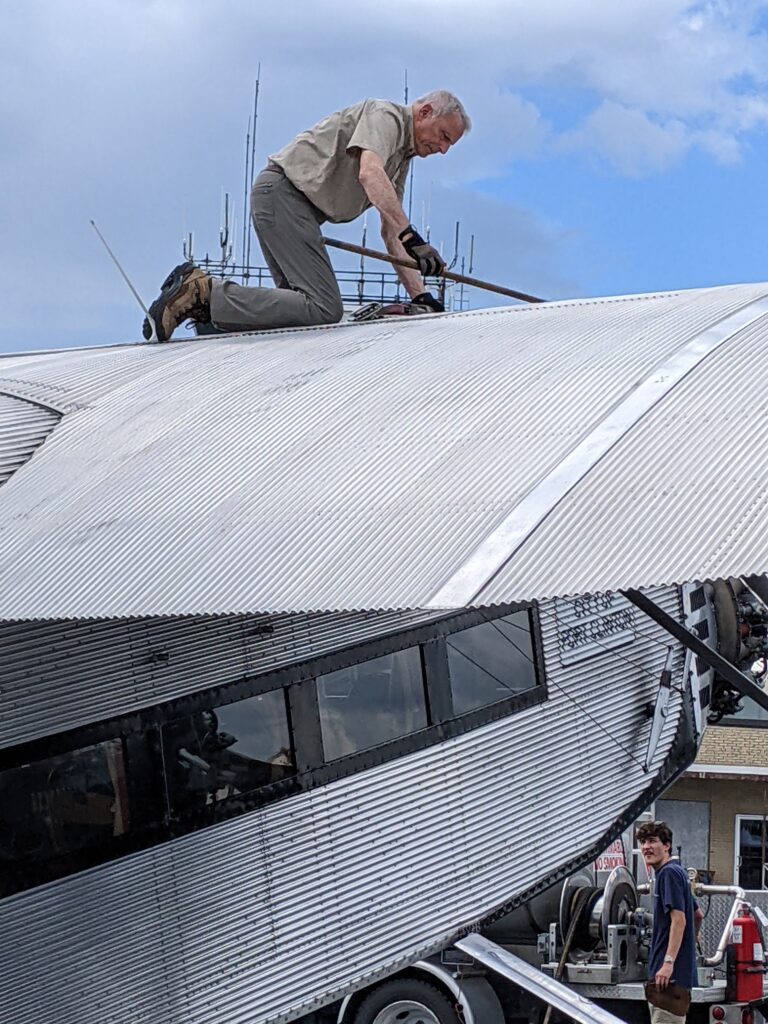
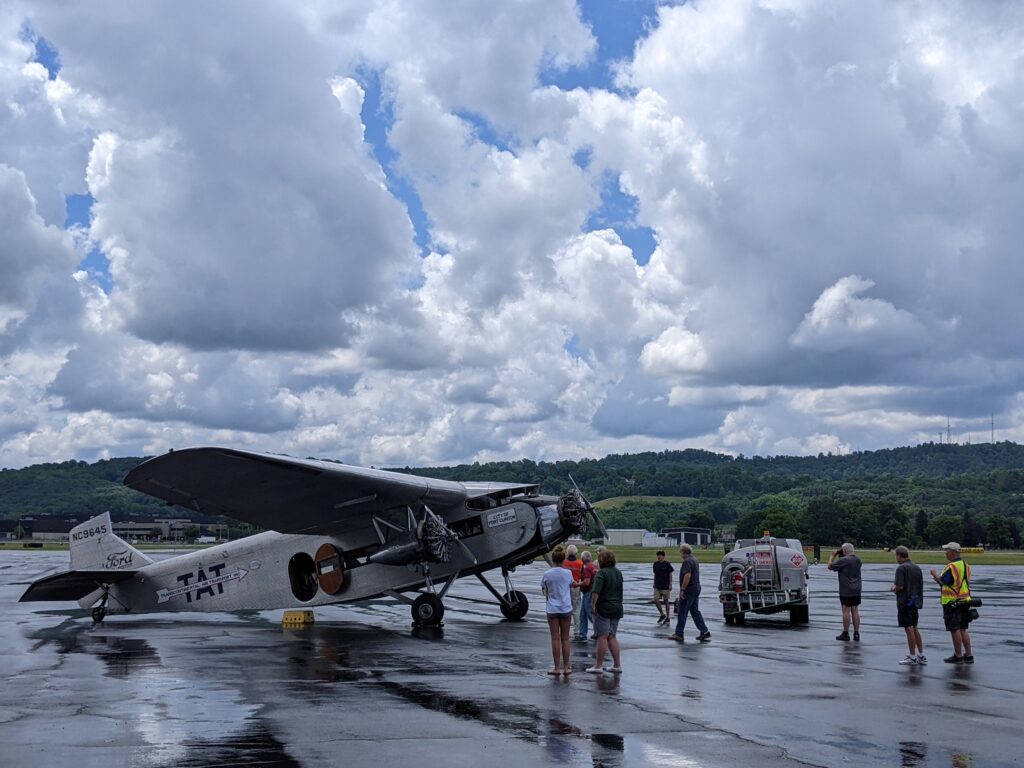
* This article was originally published here






No comments:
Post a Comment